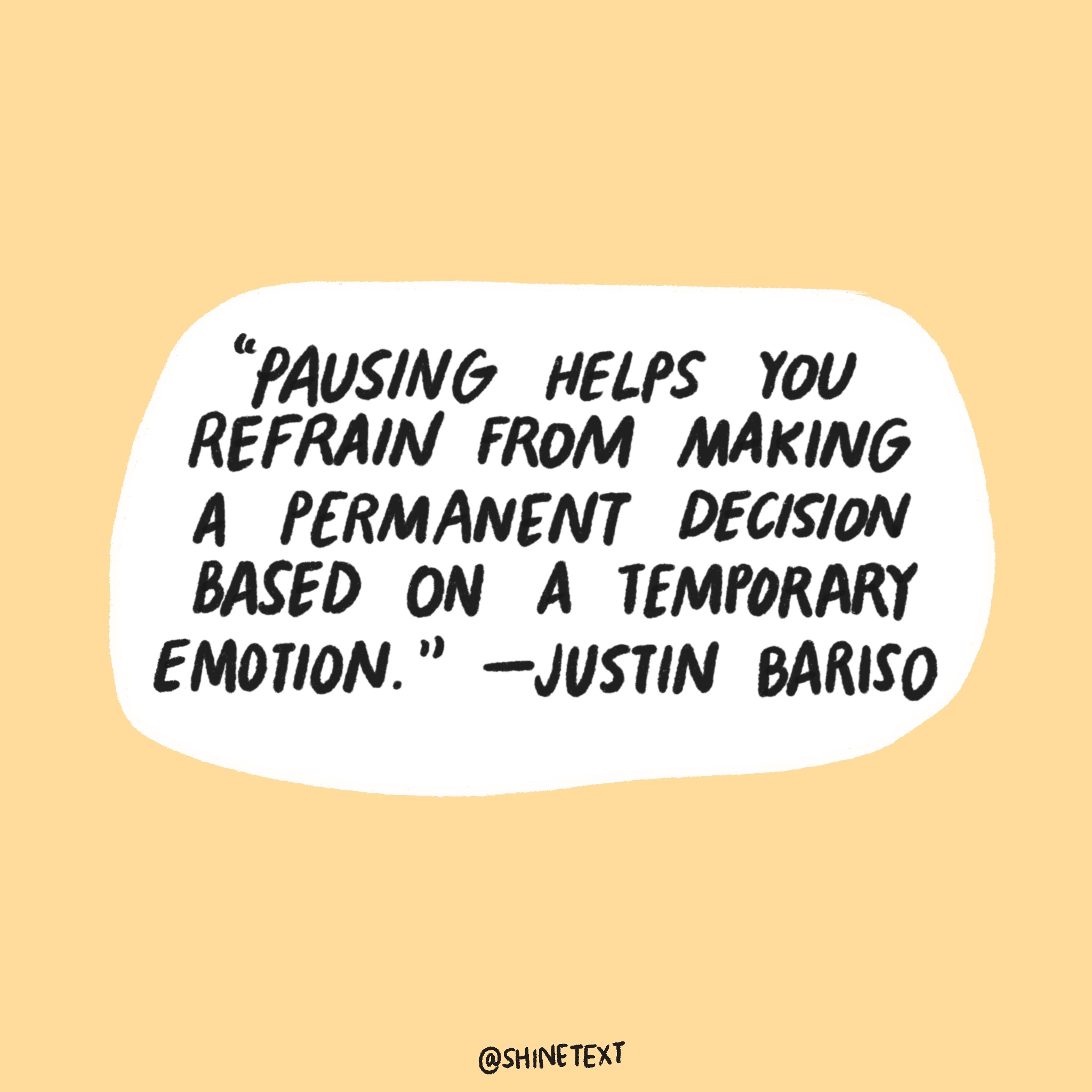It's Time to Remix Your Daily Frustrations With Gratitude
Try as you might, you can’t control feeling frustrated.
It’s a human reaction that tends to kick in when things don’t go the way you’ve planned—or the way they should, in our ideal world: Traffic flares up when you’re already late. You spill your coffee when bumping into a coworker. Said coworker is a total jerk on day one of a group project.
To ignore that hot flame of frustration would be nearly impossible—and not so good for your emotional wellbeing.
What you can control is your reaction to feeling frustrated. Yes, it’s healthy to feel a little upset, but it doesn’t have to stick around and ruin your day.
The next time you find yourself frustrated by something outside your control, try adding a little gratitude into the mix.
The next time you find yourself frustrated by something outside your control, try adding a little gratitude into the mix.
It sounds crazy: What’s there to be grateful for when your great boyfriend turns into a not-so-great ex-boyfriend? But consider gratitude the kryptonite of frustration.
Research has shown that identifying the positive aspects of a frustrating situation—say, what you learned about yourself from ditching that BF—can help people feel more positive about an otherwise negative experience.
Take it from Robert Emmons, Ph.D., author of Thanks!: How Practicing Gratitude Can Make You Happier and the world’s leading gratitude expert. He says that while accepting negativity is important, “recasting” frustrations as opportunities—and showing gratitude to the moment—can help us cope.
He suggests trying it out on an ongoing frustration, like that bad breakup or a layoff you’re still trying to work through. Think back to your anger in the moment, and then think of what you learned from the experience.
Ask yourself:
●︎ What lessons did the experience teach me?
●︎ Can I find ways to be thankful for what happened to me now even though I was not at the time it happened?
●︎ What ability did the experience draw out of me that surprised me?
●︎ How am I now more the person I want to be because of it?
●︎ Have my negative feelings about the experience limited or prevented my ability to feel gratitude in the time since it occurred?
●︎ Has the experience removed a personal obstacle that previously prevented me from feeling grateful?
Try jotting your answers down as you go. You may connect the dots between a past frustration and a recent success, or feel less resentful for the way a friend let you down. And eventually, you may find you’re glad for the annoyance. That’s what Emmons has found in his own research.
Emmons explains how a study at Eastern Washington University showed that students who wrote about an unpleasant memory and focused on positive aspects of the experience felt less of an unpleasant emotional impact and more closure than participants who weren’t asked to get grateful.
Plus, feeling gratitude comes with its own set of benefits.
Studies have found that those with a grateful mindset sleep better, show fewer signs of depression, and even make smarter financial decisions than their not-so-grateful peers.
Translation: Recasting frustration doesn’t just relieve frustration in the moment—it can help you feel better long-term, too.
Now that you know how to remix past frustrations, try bringing it into your life on the daily. The next time a stressor strikes, pause and think, what am I learning from this? What is there to be gained? Hindsight is 20/20, sure, but it’s possible to reflect in the moment, too.
Here, just a few daily frustrations that can feel a little more bearable with the help of gratitude:
Your coworker is making things as hard as possible.
It’s easy to lose your cool when it seems like a colleague is hell-bent on sabotage. You may find yourself making their work difficult in response, or composing a whole backstory as to why they’re so nasty—and why you’re justified in resenting them.
But all that anger? It’s not doing you much good.
The next time you feel yourself heating up, ask, “What is this person teaching me? What skills do they bring out in me?”
You might realize that butting heads has sharpened your negotiation skills, or that it’s helped you learn how to pick your battles. Bonus: Letting off some of that steam may actually improve relations with your workplace nemesis.
You’re visiting family—and feeling like an angsty pre-teen.
Nothing brings on outrage like a family visit. It can feel like your siblings and parents have a user’s guide to pressing your buttons, and any veneer of self-control just melts away.
On your next visit, use that frustration as a chance to see how you’ve changed since childhood. Sure, you may have the same instinctual reaction to teasing as you did as a child, but maybe you’re better at managing your anger. Perhaps your dad’s disappointment in your career path helps you see that you’ve made the right choices for yourself—and that making him happy would have been futile.
You’re stuck in traffic or a long line at the salad bar.
Killing time sucks—especially when you have a long to-do list waiting at your desk. But try feeling grateful for the unexpected free time.
Think: These extra 20 minutes mean I can catch up on my favorite podcast. Or, now I can call that friend I’ve been meaning to connect with. You might even spend the time meditating on— and recasting—a past frustration, for a gratitude two-for-one.
The next time frustration pops up, try thinking “gratitude” and see what happens. It might just make that spilled coffee feel a little less ugh, why me?
Read next: The Secret to Dealing With Life's Little Frustrations

Shine is supported by members like you. When you buy through links on our site, we may earn an affiliate commission. See our affiliate disclosure for more info.


